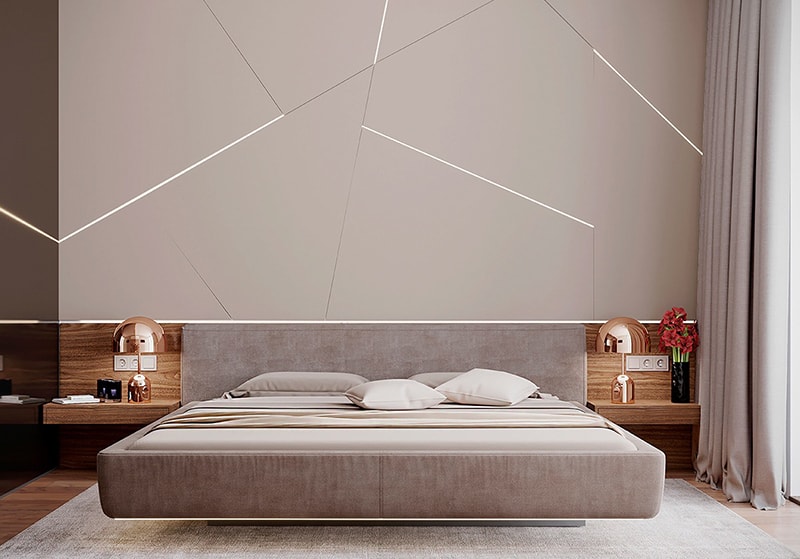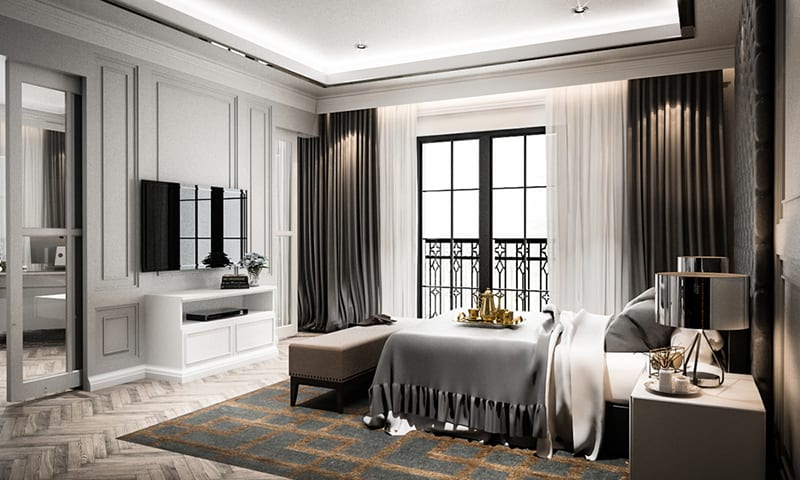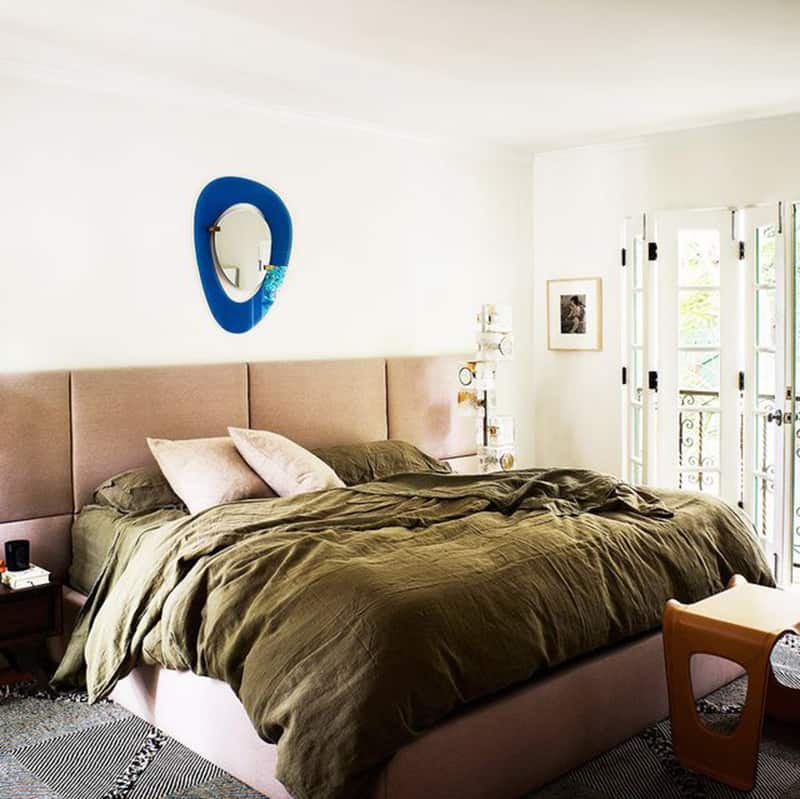It’s hard to deny that we’re living in stressful times. However, no matter how stress-inducing a life one leads, everyone needs a place in which they feel truly at peace. Since bedrooms are often synonymous with rest and relaxation, it stands to reason that you’d want to make this space as peaceful and stress-free as possible. While this may seem like an uphill battle – particularly for people who lead excessively stressful lives – creating a bedroom that’s conducive to stress reduction is well within your abilities. So, if you’re ready to de-stress your bedroom, the following tips are sure to prove useful.

Invest in Comfortable Bedding
Your bed is the star of your bedroom – the main attraction, so to speak. (Heck, “bed” is right there in the name.) Additionally, healthy sleep patterns are commonly associated with good mental health and manageable stress levels. That being the case, it’s only natural to strive for the best possible night’s sleep – and the right bedding can prove helpful in accomplishing this goal. For starters, you’ll need to find a comfortable mattress and a bed frame that provides ample support. Fortunately, there’s a mattress for everyone, so no matter what your personal sleep preferences are, you should be able to find your ideal bed with ease. For added comfort, consider investing in some high-quality foam mattress toppers.
Stick to a Sensible Number of Furnishings
There’s nothing wrong with wanting to incorporate multiple furnishings into your ideal bedroom. In addition to a comfortable, attractive bed frame, a nice dresser and some tasteful shelving can add a distinct sense of character to your safe space. However, when selecting the right furnishings for your bedroom, avoid going overboard and buying too much. While every bedroom needs its share of furnishings, cluttering up the space with unnecessary furniture and décor is conducive to a messy, stressful atmosphere. This isn’t to say that you should go full-on minimalist – unless, of course, that’s what you want – but when it comes to furnishing a bedroom, too little is generally preferable to too much.
Be Aggressive in Your Decluttering Efforts
Clutter is among the last things you want in a space dedicated to destressing. If you see copious amounts of dirty clothes, used dishes and other common forms of bedroom-based clutter every time you survey the area, relaxation is liable to be the last thing on your mind. As such, make a point of being vigilant in the battle against clutter. For example, to avoid leaving dirty clothes all over the place, invest in a robust hamper, and do laundry whenever it begins to reach capacity. Secondly, every time you use a dish in your bedroom, take care to promptly return it to the kitchen upon finishing your snack or beverage. Furthermore, people who enjoy reading in bed should keep their books and magazines organized on a sturdy bookshelf. Alternatively, if you’re looking for a great way to declutter and reduce your carbon footprint, treat yourself to a good e-reader.
In addition to decluttering, try to keep work-related electronics and documents out of the bedroom. This is a space for inner calm, and bringing work into it reinforces the notion that no one ever truly clocks out.

Utilize a Calming Color Scheme
Your choice of color scheme can have a significant impact on how relaxing your bedroom is. When searching for the right colors for this space, it’s in your best interest to stay soft and neutral. Soft grays, blues and whites are particularly soothing and liable to instill feelings of calm. On the flipside, color schemes that are bold and loud are likely to keep your mind racing, which is the last thing you want when it’s time to come down from the day.
Nearly everyone deals with stress on some level. Whether your stress stems from job-related matters, interpersonal relationships, financial issues or some combination thereof, keeping stress levels in check is crucial for both your mental well-being and physical health. When it comes to managing stress, it’s imperative that you have space in which you feel completely at ease. For many people, bedrooms function as areas of calmness and relaxation, and if you’re interested in turning yours into a stress-free space, the pointers discussed above should help get you to where you need to be.

